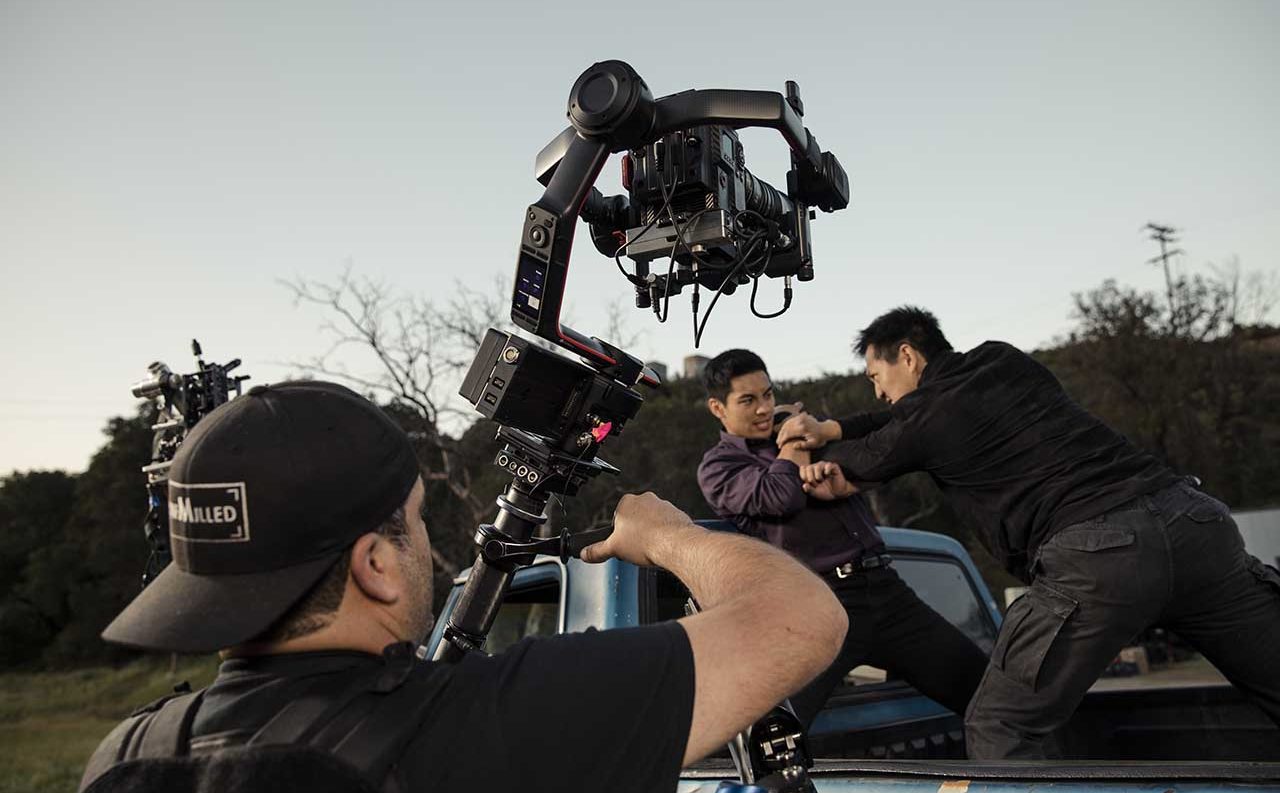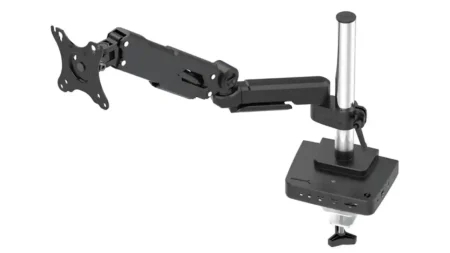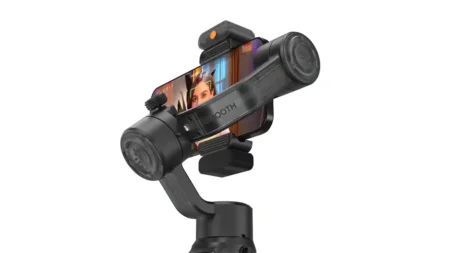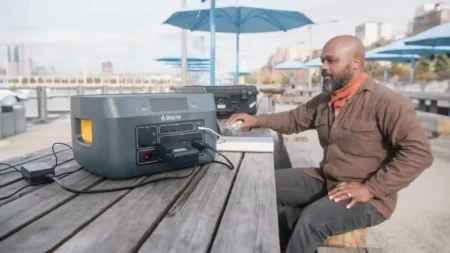If you’re considering making films as a career then you’ll have to make a number of tough, but informed, decisions. Steve Fairclough spoke to two filmmakers – both of whom made the switch from shooting stills to shooting video – to get their top tips for setting up in business and making money from shooting and producing videos.
What you’ll learn
- How to start a video business
- How to get work and clients
- Why budgets are crucial
- The importance of choosing the right kit for the job
- How to make money from your work
- The best lessons that can learnt from mistakes
- Top advice for aspiring videographers
What you’ll need
- Online and marketing skills
- People skills to attract clients and work with crews
- Financial know-how for pricing up your work
- A 4K resolution camera kit with a back-up body
- A high-quality hard drive to back up your work
If you want your video business to be a success you’ll need to make financial and creative decisions that will help you to make money, but what are the best ways to go about this? To get some expert advice from those in the know Camera Jabber spoke to photographer and filmmaker Rick Bronks and the drone and underwater videographer Fergus Kennedy.
How to set up a video business

Fergus Kennedy is a man of many skills – he is a qualified marine biologist, photographer and filmmaker. He has worked on several underwater film projects, from project development to the shoot, edit and delivery. Fergus has worked on major series for all the main UK TV channels and a number of commercials. He has also written two books on drone photography and filming. His clients include BBC, ITV, Channel 4, Canon, Toyota, Nissan, WWF and Ericsson. You can find out more about his work at www.ferguskennedyphotography.com and www.skylarkaerialimaging.com.
Fergus explains: “When you’re setting up a video business, I think you need to consider the market and where you fit into it. Who are your ideal clients and what makes them tick? Try to think from their point of view – what sort of budgets do they have? What is their strategy and how can you help them tell the story they want to tell and provide good value for money? Boring, but important, is to make a business plan and set realistic targets for what you’d like to achieve over the coming months and year.”

Photographer and filmmaker Rick Bronks began his career as a TV producer for 10 years and later switched to shooting stills and telling stories through film videos. His company, Satureyes, offers a full client service from planning to implementation and delivery on multiple formats via a full in-house production facility. You can find out more about him at www.satureyes.com.
Rick reveals: “It’s going to be a huge learning curve if you haven’t ever dabbled with video before. Even if you’ve had a camcorder in the past, shooting on a camera like a mirrorless or a DSLR has some big differences that you need to learn. You also need to think about the kind of video you’re targeting. If you’re likely to be shooting conferences, for example, then you don’t want to be shooting them to get a beautiful bokeh… you’ll need to get close and in focus, so a camcorder kit might be what you need. Not everything needs to be shot at f/2.8 or wider and not everything needs to have a blockbuster ‘cinematic’ feel to it.”
Top tips for making money from shooting video
There are several key factors when it comes to making money from a filmmaking business. These include being reliable, delivering or exceeding your clients’ expectations and knowing how to cost out your jobs and the time that you’ll spend on them.
Fergus Kennedy says: “I think to have a successful career in filmmaking, you need to be reliable, easy to get along with, consistently deliver what the client wants (and on time) and you have to be prepared to change with the times. In this fast-paced multimedia world, being adaptable and spotting trends can be big assets. As with any business, you should try your best to keep your costs down to help maximise your profits.”
Meanwhile, Rick Bronks is very honest about the possibilities of making money from making films: “It’s true that the potential earnings from video can be greater than stills photography. There’s a lot more mystery behind shooting and delivering video, so you’re able to charge more. You have to really carefully look at your kit and what it can do, and if it can do what you need it to do with the type of work you’re likely to get.”
He adds: “Like photography, video has many genres and disciplines. You can’t do them all, so narrow your market and specialise in this. Are you going to edit too or send it to someone else to edit? If you pay an editor you need to factor these costs into your business. If you’re going to edit, and you’ve never really edited, you need to consider how much time it will take you to edit a piece. If you are spending a month on a video, you’re not out filming. It might be worthwhile to pay an editor, so you can be out shooting more. You need to learn about valuing your time. There is no value in taking so long on an edit that it’s taking you away from generating new business elsewhere. You need to work out your costs, and work out your value from the outset.”
Learning from mistakes
Anybody who works for themself isn’t instantly an expert in how to run a business, so it’s important to learn from the major mistakes that you’ll undoubtedly make along the way. Both Fergus Kennedy and Rick Bronks caution about the dangers of overspending…
Fergus reveals: “Probably a common mistake that many can relate to is spending too much money on kit. There’s always newer and shinier kit, but the truth is most of the time you probably don’t need it. And when a client does demand top-end kit, it’s often a better idea to hire it. Try to work out what your core kit is that gets used time and time again and will easily pay for itself in hire-out charges.”
He continues: “Remember to keep the story and the edit in mind at all times. It’s easy to get swept away with the excitement of getting a particular shot with beautiful light, or overcoming a technical challenge, but then wasting time at the expense of shots that are going to be crucial to telling the story. This is where detailed pre-production planning comes in.”
Rick explains: “When I first started shooting video, cameras and lenses were very different. Corporate clients almost expected a big camera and all ‘bells and whistles’. We spent £12,000 on one lens, but that lens gave us an edge over our competition and we pushed the boundaries of what the camera we had could do in terms of quality. The camera was also £10,000-£12,000 so it was a huge investment. However, [it meant] I had kit that was perfect for the job I was doing.”
He continues: “The main problem we had was to over-spend on kit. Not only this but it’s also easy to get lured into a ‘buy now pay later’ system, These are excellent ways to get amazing kit but you need to be very disciplined in ensuring the payments can be made at the end of a ‘pay later’ scheme. Take the total cost, then divide it by the number of months you have the finance package. Then put the money aside each month or, if you have to, let it work with your cashflow. Whatever you do, NEVER leave it till the last day to get the payments in. If you roll over from the 0% rate you’ll be screwed by huge, huge interest rates and end up paying 40-50% more than you thought on the finance package.”
Best advice for setting up a video business
When quizzed on the best advice they would give to aspiring filmmakers who are just starting out in their careers, or indeed photographers who are looking to expand their business by branching out into making videos, it is clear that there is no quick-fire way to go about this…
Fergus Kennedy replies: “I think the most important advice is that, like many industries, there’s a lot to learn about film production, not just on the technical side but on the business side and dealing with clients. Talk to as many people as you can and try to get some work experience with established businesses. Listen to seasoned professionals and watch how they communicate with their clients. Be prepared to step outside your comfort zone and you will ultimately grow both as a filmmaker and a person. Filmmaking is usually a team effort, so good people skills are a key asset.”
Rick Bronks advises: “Work with what you have. Don’t ‘over-spec’ your camera gear. If you have some stills kit, the chances are that you don’t need much to get into the moving image [arena]. I’d invest in a video tripod of a decent quality… a stills tripod isn’t designed to move smoothly on pan and tilt axis, so don’t skimp on this. You’ll need to read a lot online so try and find other filmmakers doing something similar in the same sort of field as you. See how they do it. Read forums. Learn what the settings do as video settings are not the same [as settings for shooting stills]. Autofocus isn’t the same on video mode as on photo mode. Video is much more manual and you’ll need to learn how to work with this.”
Rick concludes: “Be realistic. Don’t try and create the next Avengers movie. Perhaps start with some behind-the-scenes stuff with a photographer friend. Don’t leap in there before you know what you’re doing. I’m also very weary of the over-use of the term ‘cinematic’. People are very into shooting to make things look like Lord of The Rings… I guarantee you that even if you had the same camera they shot the movie on, your stuff won’t look like that. Take it slowly, build your confidence and keep focused on the specifics of making sure your clients get what they want.”
Essential insider info
There’s no substitute for the advice of those who’ve been there, shot it and got the showreel. Hopefully, the informed opinions of the experienced filmmakers we’ve interviewed here will have given you food for thought and some clear ideas of how to start a video business.
Some of you may only be dabbling in video at this point in time but, like the two filmmakers we’ve spoken to here, this could quite quickly end up as being a possible career change. Taking their experiences onboard in combination with a continuing thirst for learning about all aspects of shooting video will, hopefully, mean you can develop your filmmaking skills so you fulfil your potential. That may simply be to have filmmaking as a sideline or it could end up as your main imaging business.



